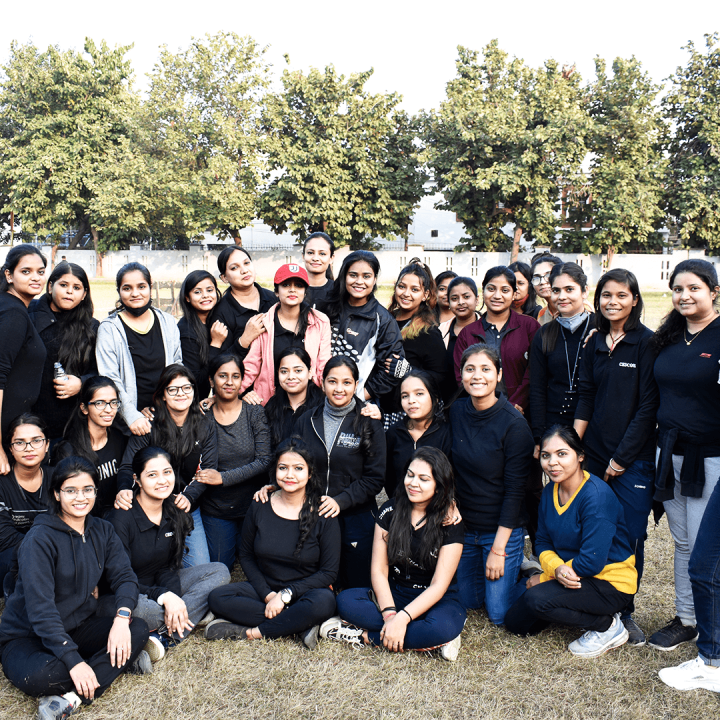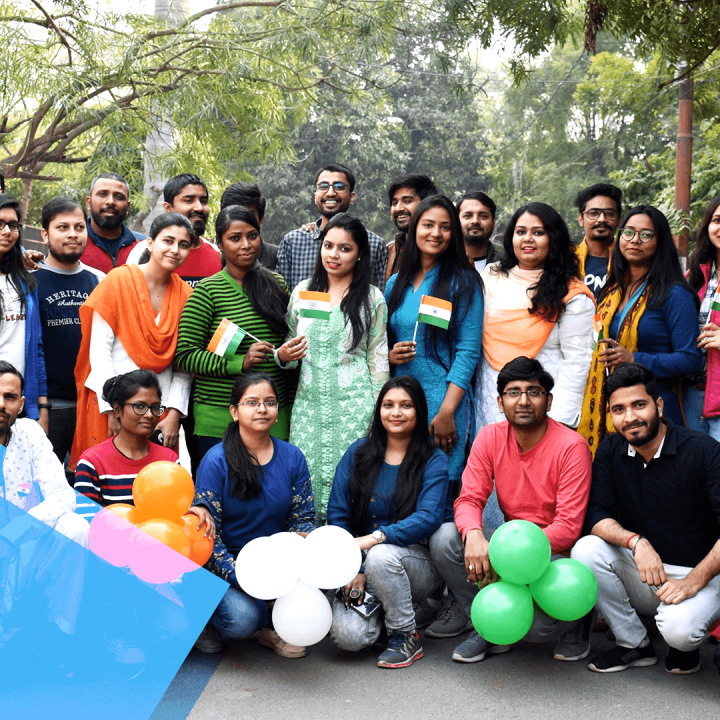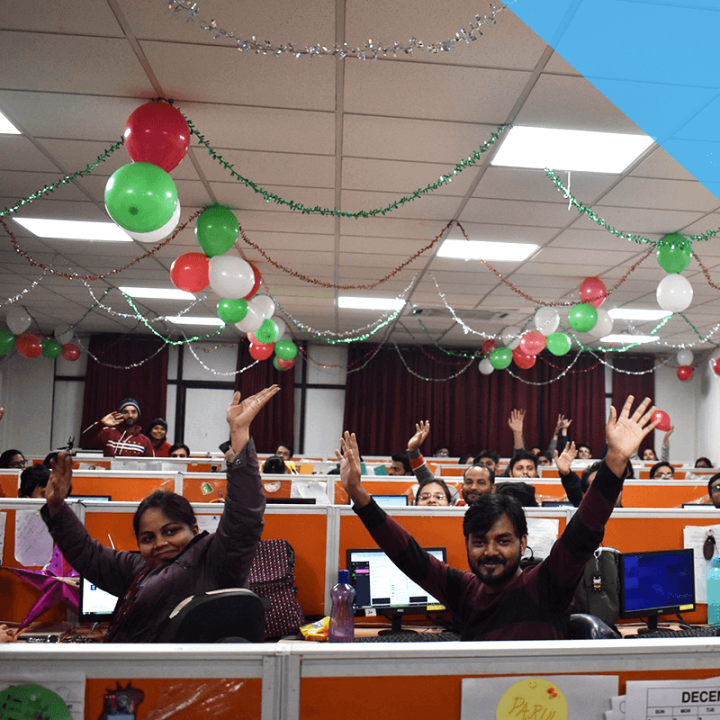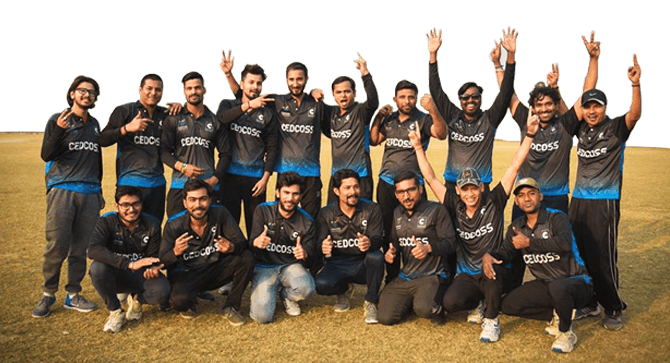The Psychology of Interview: How to Make a First Good Impression and more
Did you know that 60% of hiring managers make a hiring decision within the first 5 minutes of an interview? That’s right; you only have a few minutes to make a good first impression and convince the interviewer that you’re the right candidate for the job.
This statistic is a sobering reminder of the importance of the psychology of interviews. First impressions matter; you must be prepared to start the interview strong.
In this blog post, we’ll share unconventional interview tips to help you stand out from the competition and make a lasting impression on hiring managers.
Understanding the Psychology of Interview
As complex as it sounds, the ‘psychology of interview’ is fascinating.
At its core, it is about understanding how human psychology influences the interview process. This includes the psychological factors that influence the interviewer’s decision-making process and the psychological factors that influence the candidate’s performance.
- Understanding interviewing psychology can help you understand how to make a good first impression.
- How to present yourself positively and answer common interview questions effectively.
- You also learn to tackle your anxiety and nerves and build rapport with the interviewer.
Learning about the psychology of interviews can give you a significant advantage in the hiring process.
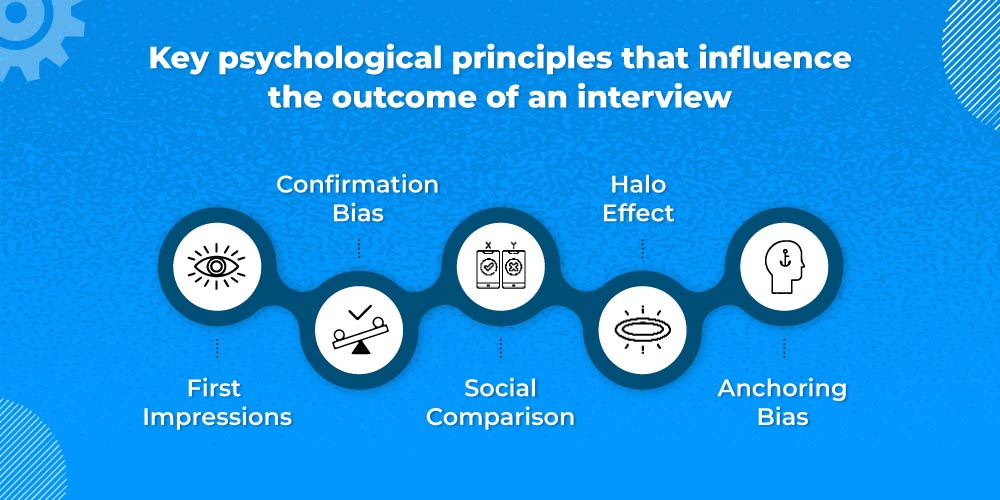

Key psychological principles
Anchoring Bias: The initial information presented can significantly impact the interviewer’s perception. Start the interview with a strong opening statement that highlights your most relevant qualifications.
First Impressions: The first few minutes of an interview are crucial. Make a strong impression with your appearance, demeanor, and confident handshake.
Confirmation Bias: Interviewers may seek information that confirms their existing beliefs about you. Highlight your qualifications and experiences that align with the job requirements.
Halo Effect: A positive first impression can influence the perception of your other qualities. Focus on presenting yourself in a favorable light.
Social Comparison: Interviewers may compare you to other candidates. Emphasize your unique skills and experiences that set you apart.
Tips for Using Psychology to Your Advantage:
Ask Thoughtful Questions: Demonstrate your interest in the company and the role by asking insightful questions.
Build Rapport: Establish a connection with the interviewer by finding common ground or sharing personal anecdotes related to the job.
Use Storytelling: Craft compelling stories that illustrate your skills and experiences. This makes you more memorable and relatable.
Be Authentic: Present yourself honestly and genuinely. People are more likely to connect with someone genuine.
Practice Active Listening: Pay close attention to the interviewer’s questions and respond thoughtfully. This shows that you are engaged and interested.
By understanding the psychology of interviews and using the tips above, you can increase your chances of making a good impression and landing your dream job. In addition to the above, here are some other things that candidates can do to use the psychology of interview to their advantage:
- Use Storytelling
- Be Authentic
- Be Positive
- Don’t forget to follow up
Critical trends in interviewing technology
The future of hiring is rapidly changing, and new technologies are playing a major role in this shift. With this shift, there come variations in the psychological factors affecting the decision of an interview. Let’s learn how with a few examples.
Virtual interviews, AI-powered interviewing tools, and gamified interviews are becoming increasingly popular, significantly impacting how employers hire.
Virtual interviews
Interviews when conducted virtually become more challenging than in-person interview setups because building rapport and making a good impression over a screen can be difficult. However, you can use psychological principles in a virtual interview. For example, you can make a good first impression by dressing professionally and having a neat and well-lit background. You can also build rapport by making eye contact and smiling through the camera.
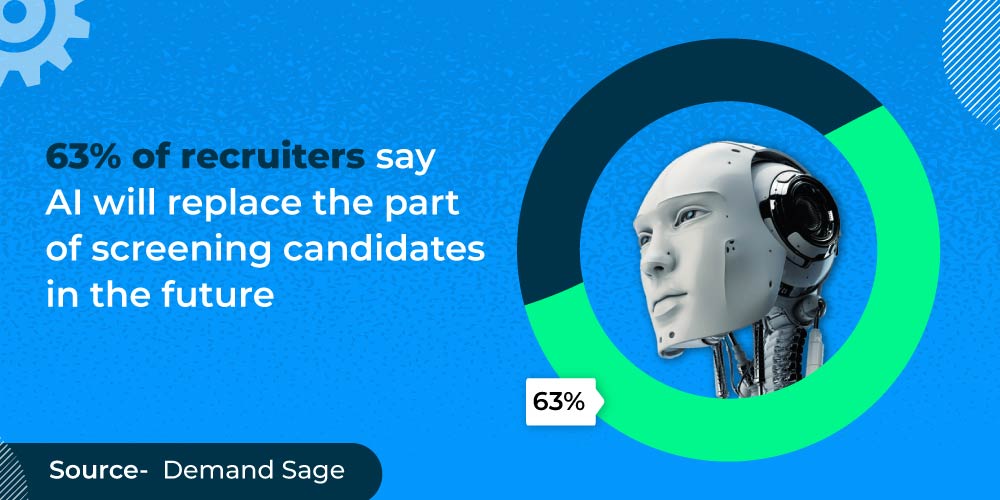

AI-powered interviewing tools
AI-powered interviewing tools can screen candidates for things like their communication skills and ability to answer common interview questions. However, these tools are not perfect, and they can be biased against certain groups of people. It is essential to be aware of the potential biases of AI-powered interviewing tools and to prepare accordingly. For example, you can practice answering common interview questions in advance and ensure that your resume and cover letter are tailored to the job you are applying for.
Gamified Interviews
Gamified interviews are becoming increasingly popular, especially for tech jobs. These interviews use game-like elements to assess candidates’ skills and problem-solving abilities. When preparing for a gamified interview, it is essential to practice the types of games that you may be asked to play. You should also be prepared to think creatively and to work under pressure.
How these trends will impact the way we hire in the future
In the future, virtual interviews are likely to become even more common. This is because they offer several benefits for both employers and candidates. For employers, virtual interviews save time and money, making it easier to recruit candidates worldwide. For candidates, virtual interviews are more convenient and accessible, and they can be done from the comfort of their own homes.
Similarly, AI-powered interviewing tools will likely play an even greater role in hiring. This is because they can help employers to hire better talent and make more efficient hiring decisions. For example, AI-powered interviewing tools can screen candidates for their communication skills, problem-solving abilities, and cultural fit.
The same goes for Gamified interviews, which can help employers identify candidates with the skills and abilities that they need, and they can also help to create a more inclusive and fair hiring process. In addition to these mentioned trends, there are several other ways in which upgrading trends in interviewing psychology impacts how we hire.
Let’s have a look at a few more examples:
- Increased focus on soft skills. When hiring, employers traditionally focus on hard skills, such as education and experience. However, as the workplace becomes increasingly complex and interconnected, soft skills, such as communication, teamwork, and problem-solving, are becoming increasingly important. New interviewing techniques are being developed to help employers assess candidates’ soft skills more effectively.
- Greater emphasis on diversity and inclusion. Employers are increasingly recognizing the importance of diversity and inclusion in the workplace. They are looking for candidates who have a variety of backgrounds and perspectives. New interviewing techniques are being developed to help employers reduce bias in the hiring process and create a more inclusive hiring experience.
- More use of data and analytics. Employers are increasingly using data and analytics to make hiring decisions. For example, they may use data to track the effectiveness of different interviewing techniques or identify candidate performance patterns. This information can help employers make more informed hiring decisions and improve their hiring process.
And if we turn limitless into imagining the future, it’s not very long before employers can use virtual reality (VR) and augmented reality (AR) to conduct interviews. Or they MAY start using neurotechnology to assess candidates’ cognitive abilities and emotional intelligence.
We already have seen how employers use our social media data to learn more about candidates’ personalities and values. Employers can look at candidates’ social media posts to see how they interact with others or what topics interest them.
How these trends relate to the psychology of interview
The new trends in interviewing that we have discussed, such as virtual interviews, AI-powered interviewing tools, and gamified interviews, significantly impact the psychology of interviews.
- Virtual interviews can create a more comfortable and relaxed environment for candidates, leading to more honest and authentic responses.
- AI-powered interviewing tools can help reduce hiring bias by objectively assessing candidates’ skills and abilities.
- Gamified interviews can make the interviewing process fun and engaging for candidates, leading to more positive experiences.
And so on, the emerging trends will impact the psychology of interviews. This goes for both – the employer and the interviewee.
Summarizing all of it.
Throughout the blog post, we’ve tried to understand the psychology of interview and its importance for making a good impression and landing your dream job, regardless of the format of the interview.
Wrapping it up here, read up some of the key takeaways from this blog post :
- First impressions matter, so make sure to dress professionally, be polite, and make eye contact.
- Be confident in your abilities and highlight your strengths and accomplishments.
- Be prepared to answer common interview questions.
- Ask questions to show that you are interested in the job and the company.
- Be yourself and let your personality shine through.
- Follow up after the interview with a thank-you note.
Now that you know the importance of the psychology of an interview and have some tips on how to use it to your advantage, it’s time to start preparing for your next interview! Take some time to reflect on your skills and experience, and practice answering common interview questions.


